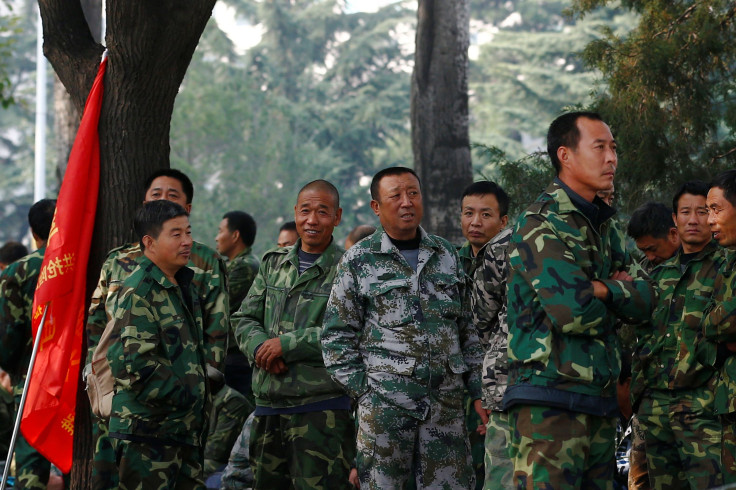Is China Building Up Its Military? A Look At Recent Developments After The Country's Slow Economic Growth

Hundreds gathered for protests over mass layoffs in Beijing, China, on Tuesday, but demonstrators weren’t publicly criticizing a manufacturing company or any business for that matter. The downsizing entity in question was none other than the nation’s military, Reuters reported.
Police patrolled streets surrounding a major military building in the nation's capital, where protesters in camouflage waved Chinese flags, chanted and held banners accusing the government of taking away their rights as workers.
At an early September military parade, Chinese president Xi Jinping announced that China, as a peace-loving nation with no further need to “seek hegemony or expansion,” would reduce army personnel by 300,000, according to the Xinhua state news agency.
The cuts, most of which will take place by the end of 2017, are the largest to hit the Chinese military since 1997 when 500,000 troops were essentially laid off. In March, the nation’s military budget growth slowed for the first time in six years. Though still increasing by a relatively large 7.6 percent to the equivalent of about $146 billion, it grew at a rate of 10 percent last year, and 12.2 percent in 2014. In comparison, the U.S. military budget for 2016 is $585 billion.
The cuts, along with Xi’s promise of "peace"—the word appeared 29 times in his Sept. 3 speech—may surprise neighboring nations Japan, the Philippines and Vietnam, all of which have been quietly warring with China over a smattering of islands in the South China Sea said to be rich with untapped oil and natural gas.
But as Chinese vessels continue to patrol the disputed islands, Beijing’s economy has begun to signal a need for land packed with fossil fuels. In his announcement of the slower defense budget growth, Maj. Gen. Chen Zhou referenced China’s slower GDP growth numbers, which were smaller than the newly reduced growth rate of the military, according to the state news agency. The nation’s economy grew just 6.9 percent in 2015, the slowest recorded growth for the country in 25 years, a sign that there may be quite a few more protests in China’s future.
© Copyright IBTimes 2024. All rights reserved.












